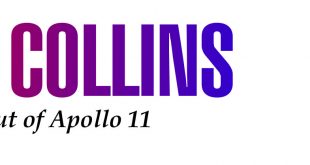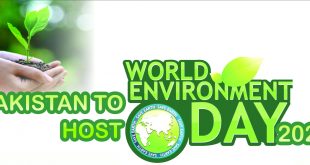United Nations High Commissioner for Human Rights
On September 01, 2018, Verónica Michelle Bachelet Jeria, who was imprisoned and tortured during Chile’s right-wing dictatorship and years later became a paediatrician and her country’s first female president, assumed charge as United Nations High Commissioner for Human Rights. Ms Bachelet has taken over at a time when major humanitarian crises are developing across the world, including ongoing conflict in the Middle East and stringent immigration policies arising in Europe and the United States. She has big shoes to fill as she has replaced Zeid Ra’ad al-Hussein, a Jordanian prince and longtime diplomat who became one of the most forthright critics of abuses by governments in many countries, including the United States, during his four years as the High Commissioner for Human Rights. On the eve of this year’s Human Rights Day, which will be observed on December 10, we bring an interview the UN human rights chief gave to the UN News.
Question: How did you overcome the hardships you suffered under the military dictatorship of Augusto Pinochet?
Michelle Bachelet (MB): I think probably because in my family, as a child, I had a very caring and loving environment. My mom and I are very resilient, if I may say, and I think that helps a lot.
But, there was a period of my life that I really hated what was happening – I had so much rage. But afterwards, I started thinking, “I do not want this to happen anymore in Chile or in any other country of the world. So, what can I do to contribute that Chile will be a peaceful, democratic society?”
So, I put all my energies on that, and that is why I started working on defence issues to be able to speak to the militaries, because I never thought I was going to be Minister for Defence or President of the Republic.
I believed they would understand only power; I will have the power of knowledge to be a counterpart on discussing this issue. And, then, we started building a process of reconciliation, and saying, look, we might never agree on what happened in the past, but we all love the nation, we need to ensure that the future of democracy in the nation is not in danger.
I would say it allowed me to understand that, first of all, lessons should be learned, and if you really want some objective in a possible, constructive way, it can be done.
Question: As High Commissioner, you have taken over at a time when human rights are under serious attack globally. What will be your priorities?
MB: First of all, of course, my priorities are to do what my mandate asks me to do; to be the voice of the voiceless. But also to engage with governments so they respect human rights, protect people against violations of their rights, and promote human rights.
Read More: The United Nations
But, in some countries, it is not the state policy to not do the right thing but they do because they do not have the capacity. So, one of the tasks of my Office is to help build capacity. Many countries have asked us to support their judicial systems so as to make them independent, or the police or armed forces understand the importance of respecting human rights and international laws, and also technical cooperation. We also monitor and report on issues where we receive allegations of rights abuses and violations from different parts of the world.
But one of my particular priorities from the Secretary-General is prevention. I am not saying I will succeed on that, maybe not, but I will try to design a system where we can have early warning signs and try to think on early action. And, of course, I will work with member states to support and engage them in the task of promoting and protecting human rights, and in that sense, also with intergovernmental bodies, like the Human Rights Council and other rights mechanisms in the UN.
Question: Right now, some countries do not want to cooperate with OHCHR or question the worth of the Human Rights Council. How do you plan on bringing everyone together?
MB: I said in the beginning that consensus could be possible and that we should not lose ourselves in sterile disputes. Of course, ‘human rights’ is a very political thing, and you see that in the UN General Assembly, in the Security Council, so it is not in the Human Rights Council, by itself.
I mean, countries have their own visions and interests, and sometimes, they are not interested in some issues. But, what I have been doing is meeting, not only with the whole Council, but with groups of countries in Geneva such as the Group of Latin American and Caribbean countries, the African countries, the Arab countries, the Asia-Pacific countries, the West European and Other countries, the Eastern European countries, and so on, speaking but also listening to. Because, sometimes, you know what you have to do but the way you do it can be more successful than others. Sometimes, you need to speak out. Sometimes you need to strategize in terms of saying: “Look, it will work better if we do diplomatic prevention, if we start engaging the government.”
But, today, the world is complicated, and polarized, too, in some issues. I will do my best, and I hope I succeed. But anyway, the Human Rights Council is also in a process of reforming itself; they have defined that they want to be more effective and efficient, and OHCHR provides the secretariat to them. So, we will support the efforts in improving their results and outcomes, but at the end, it is a political issue, so we will work very hard, and I hope we will get important outcomes.
The world today is better than it was 70 years ago. But, having said that, there are a lot of threats; threats for multilateralism, threat and pushback on human rights, and others. It used to be for all: universal human rights, the three pillars of peace and security, development and human rights, and we see a pushback.
We see a pushback, we see that in some documents, ‘human rights’ is not mentioned, and when you ask, they say, “It is the mainstream!” And, if it is mainstreamed, it is fantastic, because everybody is doing their job. But, if it is an invisible mainstream, that is not a good thing. On the other hand, we see human rights defenders and civil society having their space shrunk. They have been under attack. Journalists have been killed.
So, there are a lot of challenges. The only thing I can say is that the struggle for human rights, probably, will never end, because it is a process where you advance, but there will always be people who want to push back, and that could be governments or even armed groups. The task of the UN is to ensure and promote the whole human rights system. And, I will do what I have to do about it, but it cannot be the task of the Office of the UN High Commissioner for Human Rights only, it has to be the task of the whole UN system.
Question: December 10 this year marks the 70th anniversary of the Universal Declaration of Human Rights (UNDHR). What progress do you think has been made in the past 70 years?
MB: There has been a lot of progress, but it is difficult to believe: Every time you turn on the TV, you see all the awful things that are there. And that is also true, I mean, but there has been progress.
Think of 1948: how many countries allowed women to vote, for example? How many respected freedom of speech? If you think of the different aspects of human rights, even in more complete things that usually people do not think of as human rights, they are human rights: on health, on education, on sanitation, on housing.
Question: Defenders of human rights are often subjected to abuse and violence. How can they be better protected?
MB: Well, the curious thing is that, as we are celebrating the 70th year of the Universal Declaration of Human Rights, we are celebrating 20 years of the Declaration on the Protection of Human Rights Defenders. And, in November 2017, a resolution on the protection of human rights defenders was approved unanimously by the UNGA.
No country voted against it. So, the issue is: on paper things may look very good, but reality is another thing. I think we have the task of making people accountable for the things they have approved. Second, to monitor implementation of those agreements that everybody has made, and engage governments, and in the cases where things are happening, holding them accountable and responsible for the killings, the torture, the detentions of many human rights defenders.
Question: Syria has been on the radar for years and the abuses continue. What is being done to ensure that justice in this country prevails in the long run?
MB: There is a discussion now among the UN member states because Syrians, of course, want to rebuild their country and reconstruct it. There is also a lot of discussion among the Security Council and others, as well as donors, as to which circumstances will be needed to develop in the country to put money on its reconstruction.
I think there is, sort of, conversation going on, and we have, of course, said that in any process of peace, peace agreement or end of war and conflict, the international experience shows that it is more sustainable and more durable when you have accountability processes – either transitional justice – when there is access to justice, and perpetrators are held accountable for what they have done.
But, I think we still cannot say this is exactly what is going to happen. But it, surely, is a work in process.
Question: You have been an avowed defender of women’s rights. How is that going to continue, as the UN High Commissioner for Human Rights?
MB: People tend to see OHCHR as only concerned with civil and political rights, but that is not it. The Universal Declaration of Human Rights clearly states the rights for migrants, for children, for women; right to health, to education. It is very comprehensive.
Even though I am not intending to replace any other agency, I always speak about issues like gender issues and gender empowerment. I will be always raising the voice for women, trying to support their capacities, and building partnership with UN Women. We have spoken with the UNICEF to see how we can create synergies. I am not going to step on anyone. That is not my attitude in life. But I do believe in building partnerships. I do believe we can think on what can we do together, and how can we push together.
I will be doing that, because, for me, children are very important too, women are very important, of course. And climate change, also. So, I will be supporting others in their main tasks, but also be finding the ways that we can create synergies.
Question: One of the most pressing issues for the entire world is climate change. How are human rights linked to the environment?
MB: Well, they are very important. First of all, because if we are not able to stop climate change the people who will suffer most are the poorest, the women, the children and mostly the vulnerable ones. They will face challenges accessing water, food or agriculture. Many of them, for example those from the small islands, will have to leave the island if the sea level rises; they will have to go somewhere as a migrant.
There are so many concrete consequences that will affect people’s lives and their rights.
That is why we also believe that working strongly to combat climate change is a very essential task, including of the High Commissioner. I think, we need to be more part of the 2030 Agenda for Sustainable Development and how we support the SDGs. I know that not all, but the idea of advancing by 2030 and not leaving anyone behind, it means, at the end, to have human rights respected throughout the world.
And climate change is of huge importance, because I have seen places where there is no more water, and people who are dependent on agriculture, mainly women now have to think how they get their incomes. With climate change, we have seen, and scientists tell us about worsening natural disasters and extreme weather, forest fires. And all of these will have a lot of consequences for the life of people. It is very important to work very closely on that, too.
 Jahangir's World Times First Comprehensive Magazine for students/teachers of competitive exams and general readers as well.
Jahangir's World Times First Comprehensive Magazine for students/teachers of competitive exams and general readers as well.



